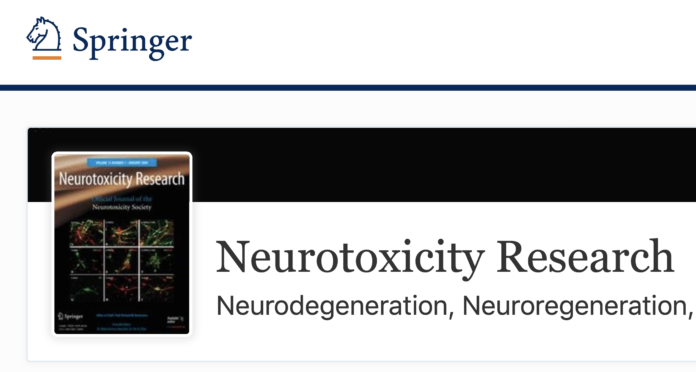Tauopathy is a pathological hallmark of many neurodegenerative diseases. It is characterized by abnormal aggregates of pathological phosphotau and somatodendritic redistribution. One suggested strategy for treating tauopathy is to stimulate autophagy, hence, getting rid of these pathological protein aggregates. One key controller of autophagy is mTOR. Since stimulation of mTOR leads to inhibition of autophagy, inhibitors of mTOR will cause stimulation of autophagy process. In this report, tauopathy was induced in mice using annonacin. Blocking of mTOR was achieved through stereotaxic injection of siRNA against mTOR. The behavioral and immunohistochemical evaluation revealed the development of tauopathy model as proven by deterioration of behavioral performance in open field test and significant tau aggregates in annonacin-treated mice. Blocking of mTOR revealed significant clearance of tau aggregates in the injected side; however, tau expression was not affected by mTOR blockage.
Salama M, El-Desouky S, Alsayed A, El-hussiny M, Abbas K, Fekry E, Shabka O, El-Khodary S, Yousef M, Sobh M, Mohamed W. (2018). siRNA blocking of mammalian target of rapamycin (mTOR) attenuates pathology in annonacin induced tauopathy in mice. Neurotox Res.
Institute of Global Health and Human Ecology, American University in Cairo, Egypt
Dr Mohamed Salama established the first Translational Neuroscience Unit in Egypt. Mohamed’s collaborative research led to establishing the Egyptian Network for Neurodegenerative Disorders (ENND). Mohamed was selected as a SOT Global Senior Scholar in 2013 and Translational/bridging awardee in 2016. He was awarded by Parkinson’s and Movement Disorders Foundation (PMDF) for his continuing research in the field of neurodegeneration.
Recently, Mohamed and his colleagues succeeded to draft the first Reference Egyptian Genome and collaborating with other colleagues to start a national cohort (A Longitudinal Study of Egyptian Health Aging [AL-SEHA]). Currently, Mohamed is Atlantic senior fellow for Equity in brain health at the Global Brain Health Institute (GBHI) and Associate professor at the Institute of Global Health and Human Ecology at the American University in Cairo (AUC).



